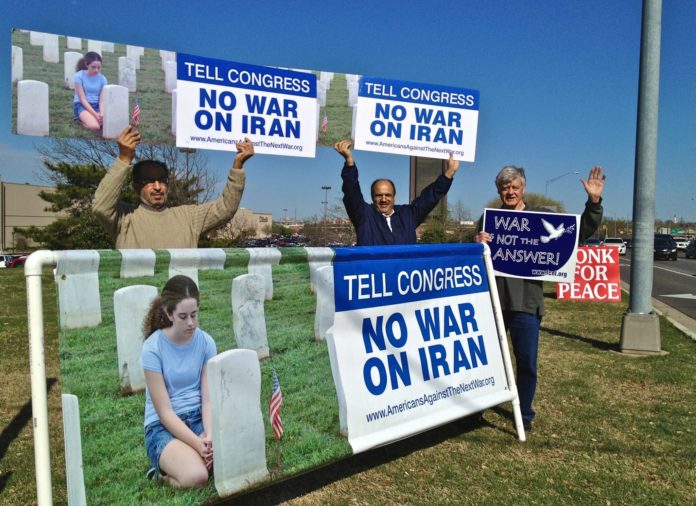BY NATHANIEL BATCHELDER
Ongoing negotiations with Iran could lead to normalized relations, even a major trading partner with the U.S. Iran would import U.S. beef and grains, benefiting Oklahoma producers. U.S. firms serving the petroleum and other industries are eager to open offices in Iran and become trading partners. Releasing Iran’s oil production would lower the world oil price, giving Americans relief at the gas pumps.
As diplomatic relations improve, Iran might well become an ally for regional stability, peace, and the security of U.S. interests. Iran is the size of Alaska with a population of 75 million and an advanced military. President Rouhani and Foreign Minister Zarif are western educated and pro-western, reaching out to change Iran’s image.
TV personality Rick Steves [“Rick Steves’ Europe”] calls Iran “the most misunderstood country he has ever visited.” His 2008 documentary about his tourism in Iran reports a modern and developed society, the majority of whom admire the U.S. and the western world.
Iran maintains that their nuclear program is exclusively for peaceful purposes – nuclear energy and medical uses. Skeptics in Congress and Israel do not believe this, but the IAEA, doing inspections in Iran for years, has never reported evidence to the contrary.
Despite naysayers and obstructionists, the negotiations that Iran agreed to with the P5+1 nations [U.S., China, France, Russia, the UK, and Germany] are on track. There is great promise in the progress thus far:
UN inspectors with the IAEA report that Iran is complying with the demands of the agreement. According to the IAEA, Iran has stopped producing 20% enriched uranium [UF6]; has disabled centrifuges producing UF6; has begun diluting its stockpile of UF6 to be complete in six months; has stopped installing additional centrifuges; has begun providing information required by the agreements; and is granting increasing access to IAEA inspectors.
The IAEA is doubling the numbers of their inspection teams and is installing additional monitoring equipment. All this means enhanced transparency of Iran’s nuclear program for the international community. “Trust but verify” has an honorable tradition in serious negotiations.
– Nathaniel Batchelder is director of the Peace House in Oklahoma City, a member of Americans Against The Next War and an occasional contributor to The Oklahoma Observer









Iran is bound and determined to support Islamic terror, instigate violence in Syria’s civil war, expand its cyber warfare capabilities and strengthen a nefarious relationship with Russia. All are grave issues that are occurring as Iran negotiates with the West over lifting sanctions in exchange for the Islamic Republic halting its nuclear weapons program.The Islamist state will not end its global ambitions despite any assurances given to the West.
The truth is sanctions are the only means short of attack in Iran’s nuclear facilities to insure Iran does not possess nuclear weapons. Iran has never exhibited in its past history an ability to abide by international agreements unless it meets their needs. A religiously governed theocracy obeys no law except its own unassailable belief in god and that is the most dangerous government to simply trust to do the right thing.